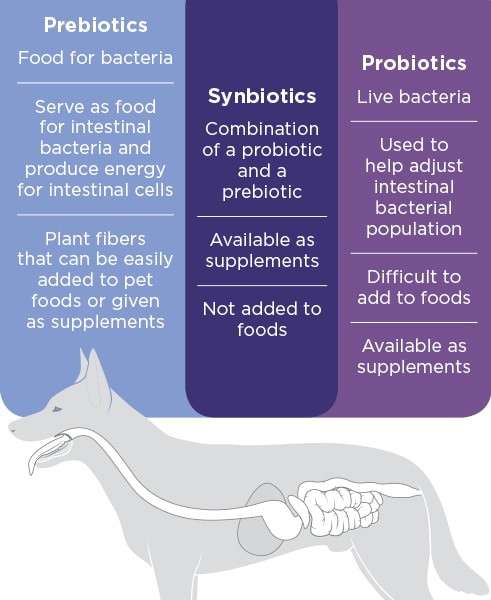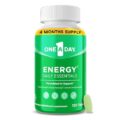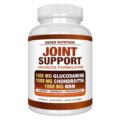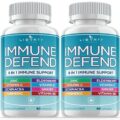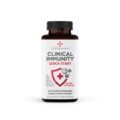Imagine giving your dog a boost that promotes their health from the inside out. Probiotics might just be the secret weapon your furry friend needs.
These tiny, beneficial bacteria work wonders in your dog’s digestive system and can make a noticeable difference in their overall well-being. But what exactly are probiotics, and how can they benefit your beloved pet? By the end of this article, you’ll discover how probiotics can lead to a happier, healthier life for your dog.
Don’t miss out on learning about this simple yet powerful way to enhance your dog’s health. Your furry companion deserves the best, and understanding probiotics could be the first step toward providing it.
Also Read
What Are Probiotics?
Probiotics are live bacteria and yeasts that are beneficial for your dog’s health, especially their digestive system. Often referred to as “good” or “helpful” bacteria, they aid in maintaining a balanced gut flora, which is crucial for overall well-being. But how exactly do these microscopic allies benefit your furry friend, and why should you consider them?
Probiotics are essentially friendly microorganisms that reside in your dog’s intestines. These microbes play a vital role in digestion, nutrient absorption, and boosting the immune system.
Think of probiotics as your dog’s tiny health partners. They help break down food, fight off harmful bacteria, and keep their gut healthy. Without them, your dog might face digestive issues, like diarrhea or constipation.
Ever noticed your dog feeling sluggish after antibiotics? That’s because antibiotics can wipe out these helpful bacteria. Probiotics can help replenish them, restoring balance in the gut.
Why Do Dogs Need Probiotics?
Dogs often face stress from changes in diet, environment, or even travel. Probiotics can mitigate these effects, ensuring your dog remains healthy and happy.
They can also boost your dog’s immune system, making them less susceptible to infections. If your dog frequently suffers from stomach issues, probiotics might be the missing link to better digestive health.
Have you ever wondered why some dogs bounce back quicker from illness than others? A healthy gut, enriched with probiotics, could be the answer.
How To Introduce Probiotics To Your Dog’s Diet
Adding probiotics can be simple. Many dog foods now contain probiotics, or you can opt for supplements available in powders, capsules, or treats.
Before introducing any new supplement, consult your vet. They can recommend the best type and dosage for your dog’s specific needs.
Notice any changes in your dog’s energy levels or digestion? That’s the probiotics at work, helping your dog live their best life.
Are There Any Risks?
While probiotics are generally safe, some dogs might experience temporary digestive changes. Monitor your dog’s reaction and adjust as needed.
Overloading your dog with probiotics isn’t beneficial. Stick to recommended amounts and always consult your vet.
Curious if probiotics are right for your dog? Listen to their body and observe any changes in health or behavior.
By understanding and utilizing probiotics, you’re paving the way for your dog’s healthier future. Are you ready to make a positive change for your furry friend?

Credit: www.canivet.co.uk
Types Of Probiotics For Dogs
Probiotics offer numerous benefits for dogs, improving their gut health and overall well-being. Different types of probiotics serve unique functions. Understanding these can help you choose the best for your furry friend. Here, we explore the main types of probiotics beneficial for dogs.
Lactobacillus Species
Lactobacillus species are common in many probiotic supplements. They help balance gut flora. This species aids in digestion. It also supports the immune system. Lactobacillus can reduce diarrhea in dogs.
Bifidobacterium Species
Bifidobacterium species are another essential group of probiotics. They promote healthy digestion. This species can relieve constipation. It also helps in nutrient absorption. Bifidobacterium supports a healthy gut environment.
Saccharomyces Boulardii
Saccharomyces boulardii is a yeast-based probiotic. It is effective against diarrhea. This probiotic is especially useful during antibiotic treatments. It helps maintain gut health. Saccharomyces boulardii supports the digestive tract.
Enterococcus Faecium
Enterococcus faecium is a beneficial bacteria. It is often included in dog probiotics. This species improves gut flora balance. It boosts the immune system. Enterococcus faecium can help reduce gastrointestinal issues.
Digestive Health Improvement
Probiotics have become a buzzword not just for human health but for our canine companions too. One of the standout benefits of probiotics for dogs is their ability to boost digestive health. Many dog owners notice improvements in their pet’s digestion, making mealtimes more enjoyable for both. But what exactly do probiotics do for your dog’s digestive system?
Enhancing Nutrient Absorption
Probiotics help your dog’s gut work smarter, not harder. By promoting a balanced gut flora, probiotics improve the digestion of food and absorption of nutrients. This means your dog gets more bang for its buck from every bite. Have you ever wondered if your dog is getting all the goodness from that expensive kibble? With probiotics, you can be confident that they are.
Alleviating Diarrhea
Diarrhea in dogs can be distressing and messy. Probiotics play a key role in stabilizing gut health, which can help reduce the frequency and severity of diarrhea. Many owners have seen their dog’s stool firm up just days after starting probiotics. Imagine fewer accidents and a happier, healthier dog. Isn’t that something worth trying?
Reducing Gas And Bloating
Gas and bloating can make your dog uncomfortable and your home unpleasant. Probiotics can help regulate the digestive process, minimizing these issues. If your dog often seems bloated or gassy, probiotics might just be the solution you’ve been searching for. Picture a peaceful evening without the soundtrack of your dog’s tummy rumblings. Sounds like a dream, right?
Probiotics can be a game changer for your dog’s digestive health. Whether it’s enhancing nutrient absorption, alleviating diarrhea, or reducing gas and bloating, these friendly bacteria offer practical benefits. Have you tried probiotics for your dog yet? What changes did you notice? Your experiences might inspire others to give probiotics a go!
Boosting Immune System
Boosting your dog’s immune system is crucial for its overall health. Probiotics play a significant role in strengthening this system. They help maintain a balance of good bacteria in the gut. This balance is essential for warding off harmful pathogens. A strong immune system means a healthier, happier dog.
Strengthening Natural Defenses
Probiotics enhance your dog’s natural defenses. They support the production of beneficial bacteria. This makes it harder for harmful bacteria to thrive. A well-balanced gut flora is the first line of defense against illness. Dogs with strong natural defenses get sick less often.
Preventing Infections
Probiotics help in preventing infections. They work by inhibiting the growth of harmful bacteria. This reduces the risk of infections in the digestive tract. Healthy gut flora can fight off invading pathogens. Your dog stays healthier with fewer infections.
Reducing Allergic Reactions
Probiotics can reduce allergic reactions in dogs. They help modulate the immune system’s response to allergens. A balanced immune response means fewer allergy symptoms. Dogs with fewer allergies enjoy a better quality of life. Probiotics make a noticeable difference for dogs with allergies.
Skin And Coat Health
Probiotics offer numerous benefits for dogs, especially in skin and coat health. A healthy coat and skin reflect a dog’s overall well-being. Probiotics can improve skin texture and shine. They can also reduce common skin problems. Dogs can experience relief from itchiness and irritation. Probiotics may help alleviate these issues naturally.
Reducing Itchiness And Irritation
Many dogs suffer from itchy skin. This can lead to constant scratching. Probiotics help balance gut bacteria. This balance can reduce inflammation. Less inflammation can mean less itching. A calmer skin surface means a happier dog.
Promoting Shiny Coat
A dog’s coat should be shiny and soft. Probiotics support healthy digestion. Good digestion leads to better nutrient absorption. Nutrients are vital for a shiny coat. Regular probiotics intake can lead to a softer, shinier coat.
Addressing Skin Allergies
Allergies can cause skin problems in dogs. Symptoms include redness and bumps. Probiotics strengthen the immune system. A stronger immune system can fight allergens better. This can lead to fewer allergic reactions. Dogs with fewer allergies have healthier skin.
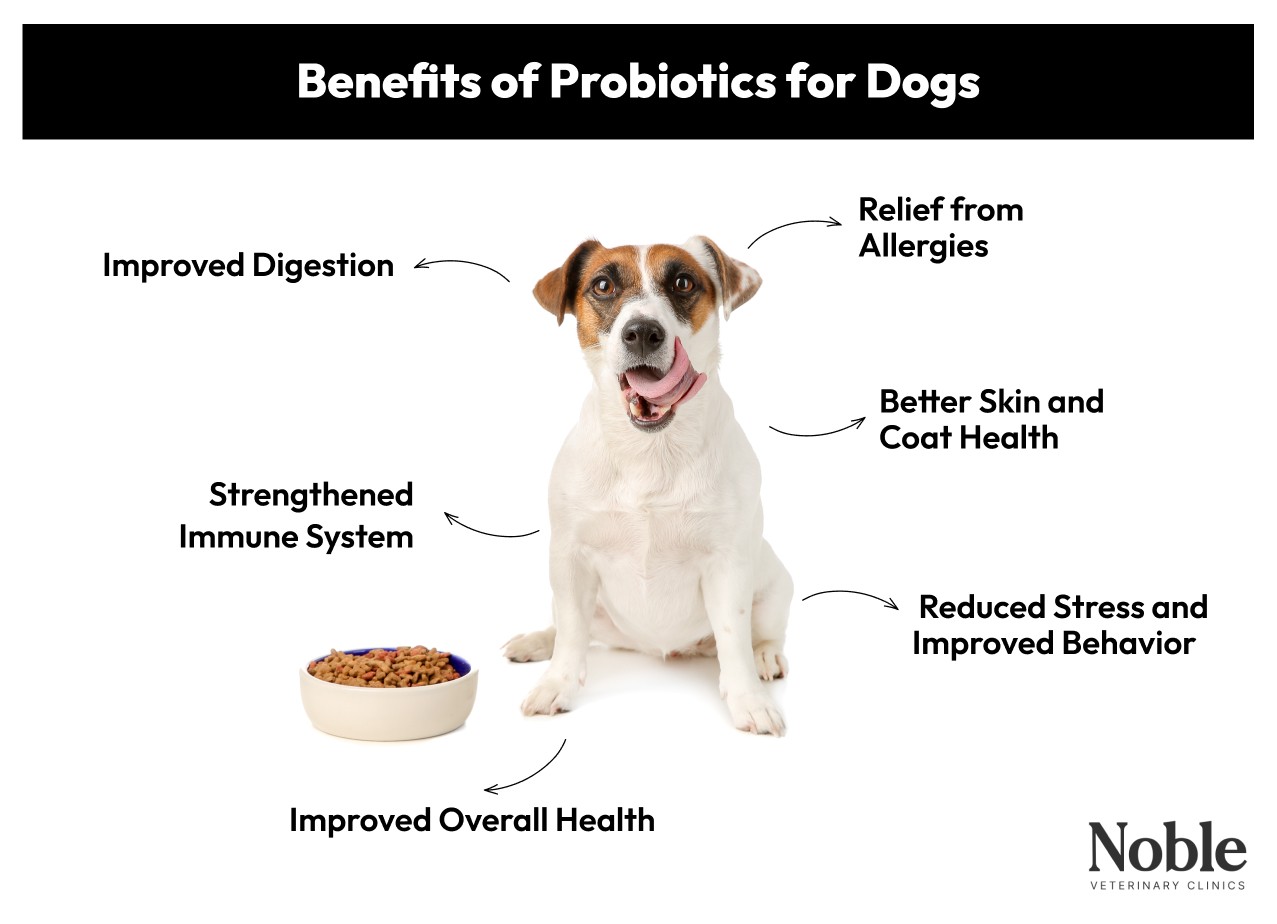
Credit: noblevetclinic.com
Behavioral Benefits
Probiotics can improve dogs’ behavior by reducing anxiety and stress. They support gut health, which influences mood. Balanced gut bacteria can lead to a calmer, happier pet.
Behavioral Benefits Probiotics are not just about maintaining your dog’s digestive health. They can play a significant role in improving your pet’s behavior. With the right probiotic supplement, you can witness noticeable changes in your dog’s mood and energy levels.Reducing Anxiety And Stress
Does your dog seem anxious during thunderstorms or fireworks? Probiotics might help. They can aid in reducing stress-related behaviors by promoting a healthy gut-brain connection. Research shows that gut health is linked to mood and anxiety levels. By improving your dog’s gut flora, you may find that your pup becomes calmer in stressful situations. Have you noticed less barking or pacing during stressful events after adding probiotics to their diet?Improving Mood And Energy Levels
A happy dog is a healthy dog. Probiotics can boost your dog’s mood by enhancing the balance of good bacteria in their gut. This can lead to increased serotonin production, often referred to as the “feel-good” chemical. Think about your dog’s energy levels. Have they been more playful and active after regular probiotic intake? This might be due to the improved gut health, which can lead to better nutrient absorption and, consequently, more energy. If you’ve ever observed your dog appearing lethargic or down, consider adding probiotics to their diet. This simple change could make a significant difference in their overall happiness and vitality. Your dog’s behavior is a window into their well-being. Why not give probiotics a try and see if it transforms your furry friend’s mood and energy?Choosing The Right Probiotic
Dogs benefit from probiotics by improving digestion and boosting their immune system. These friendly bacteria support gut health, helping to maintain a balanced intestinal environment. Choose high-quality probiotics to ensure your pet’s overall wellness.
Probiotics offer many health benefits for dogs. Not all probiotics are equal, though. Selecting the right one is crucial for your dog’s well-being. You need to know what to look for. This guide will help you choose the best probiotic for your furry friend.Evaluating Quality And Ingredients
Look for high-quality probiotics. Check labels for live and active cultures. Ensure the product contains beneficial strains like Lactobacillus and Bifidobacterium. These strains support gut health and immunity. Avoid products with artificial additives or fillers. Natural ingredients are better for your dog.Consulting Veterinarian Advice
Speak with your vet before adding probiotics to your dog’s diet. A vet can recommend the best options based on your dog’s needs. They know about any allergies or health conditions. Their advice ensures safe and effective choices. Trust their expertise for your dog’s health. `Incorporating Probiotics Into Diet
Enhancing canine health through probiotics offers numerous benefits. These beneficial bacteria improve digestive health and boost immunity in dogs. Including probiotics in their diet supports overall well-being and vitality.
Incorporating probiotics into your dog’s diet can boost their health. Probiotics support digestion and strengthen the immune system. They can help maintain a balanced gut flora. This can lead to improved overall well-being for your pet. There are two main ways to include probiotics in your dog’s diet.Probiotic Supplements
Probiotic supplements are a convenient choice. They come in powders, capsules, and chews. Each form has its own benefits. Powders are easy to mix with food. Capsules can be given as treats. Chews often have flavors dogs enjoy. Always check the label for recommended dosage. Consult your vet before introducing any supplement. This ensures safety and effectiveness for your pet.Natural Food Sources
Natural food sources offer probiotics too. Yogurt is a popular choice. Make sure it’s plain and unsweetened. Too much sugar can harm your dog. Kefir is another option. It’s similar to yogurt but more liquid. Sauerkraut can also provide probiotics. Ensure it’s low in sodium. Always introduce new foods gradually. This helps prevent digestive upset in your dog.Potential Side Effects
Probiotics can enhance dogs’ digestion and boost their immunity. Sometimes, mild side effects occur, like gas or bloating. Always introduce probiotics gradually to monitor reactions.
Introducing probiotics into your dog’s diet can offer a multitude of health benefits, but understanding the potential side effects is crucial. Just like humans, every dog is unique, and their reactions to probiotics can vary. It’s essential to monitor your furry friend for any signs of discomfort or adverse reactions when you first add probiotics to their regimen.Identifying Mild Reactions
Mild reactions to probiotics are often temporary and may include changes in your dog’s stool consistency or mild digestive upset. You might notice your dog experiencing slight diarrhea or softer stools. This is usually a sign that their digestive system is adjusting to the new supplement. Keep an eye on any changes in appetite or energy levels. If your dog seems less interested in food or unusually lethargic, it could be a mild reaction to the probiotics. It’s always wise to start with a smaller dose and gradually increase it, allowing your dog to adapt slowly.When To Seek Veterinary Assistance
While mild side effects are common, certain symptoms warrant a trip to the vet. Persistent vomiting, severe diarrhea, or noticeable discomfort should be addressed by a professional. These could indicate an intolerance or allergic reaction to the probiotics. Don’t wait too long if you notice troubling signs. Your vet can help determine whether probiotics are suitable for your dog and suggest alternative options. Remember, your dog’s health and well-being should always come first. Have you ever considered how a small change in diet can impact your dog’s overall health? It’s fascinating to see how something as simple as probiotics can have such a profound effect, both positively and negatively. Always prioritize your dog’s comfort and health, and don’t hesitate to seek expert advice when needed.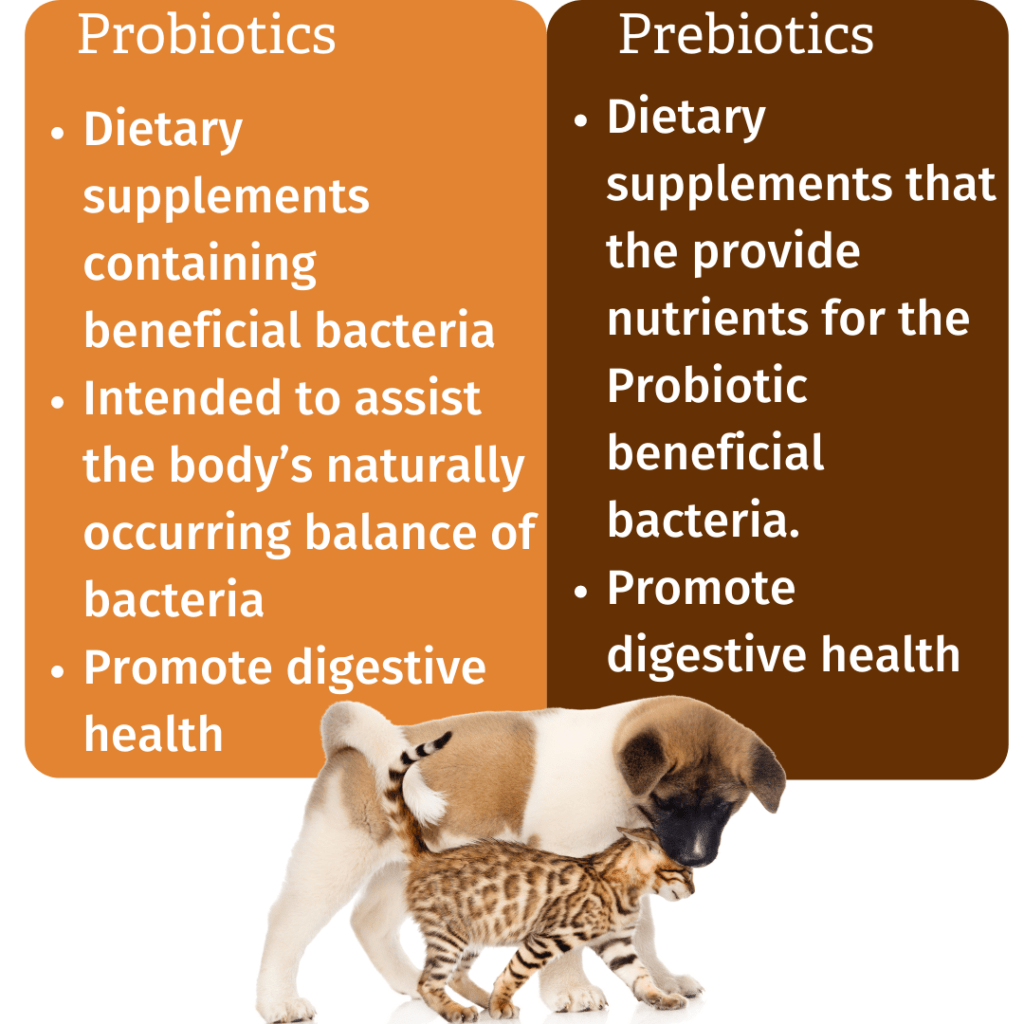
Credit: tlcpetfood.com
Frequently Asked Questions
Are Probiotics Safe For Dogs?
Yes, probiotics are generally safe for dogs. They support digestive health and boost the immune system. However, consult your vet before introducing any new supplement to your pet’s diet.
How Can Probiotics Help My Dog’s Digestion?
Probiotics aid digestion by balancing gut bacteria. They help reduce diarrhea, constipation, and bloating, promoting healthier digestion. Regular use can improve your dog’s overall gastrointestinal health.
Can Probiotics Improve My Dog’s Immunity?
Yes, probiotics can enhance your dog’s immunity. They stimulate the production of antibodies and reduce inflammation. A stronger immune system helps your dog fight infections more effectively.
What Are Signs My Dog Needs Probiotics?
Signs your dog may need probiotics include frequent diarrhea, constipation, or bloating. Other indicators are bad breath and skin issues. If these symptoms persist, consult your veterinarian.
Conclusion
Probiotics offer numerous benefits for dogs. They promote better digestion and gut health. Dogs can enjoy a stronger immune system. Probiotics help reduce allergies and skin issues. Your dog might feel more energetic and lively. Improved mood and behavior may follow.
Regular probiotics can support a balanced diet. Always consult with your vet before starting supplements. It’s important for your dog’s health and safety. Every dog deserves a happy, healthy life. Consider probiotics as part of their care routine. They might be the right choice for your furry friend.
